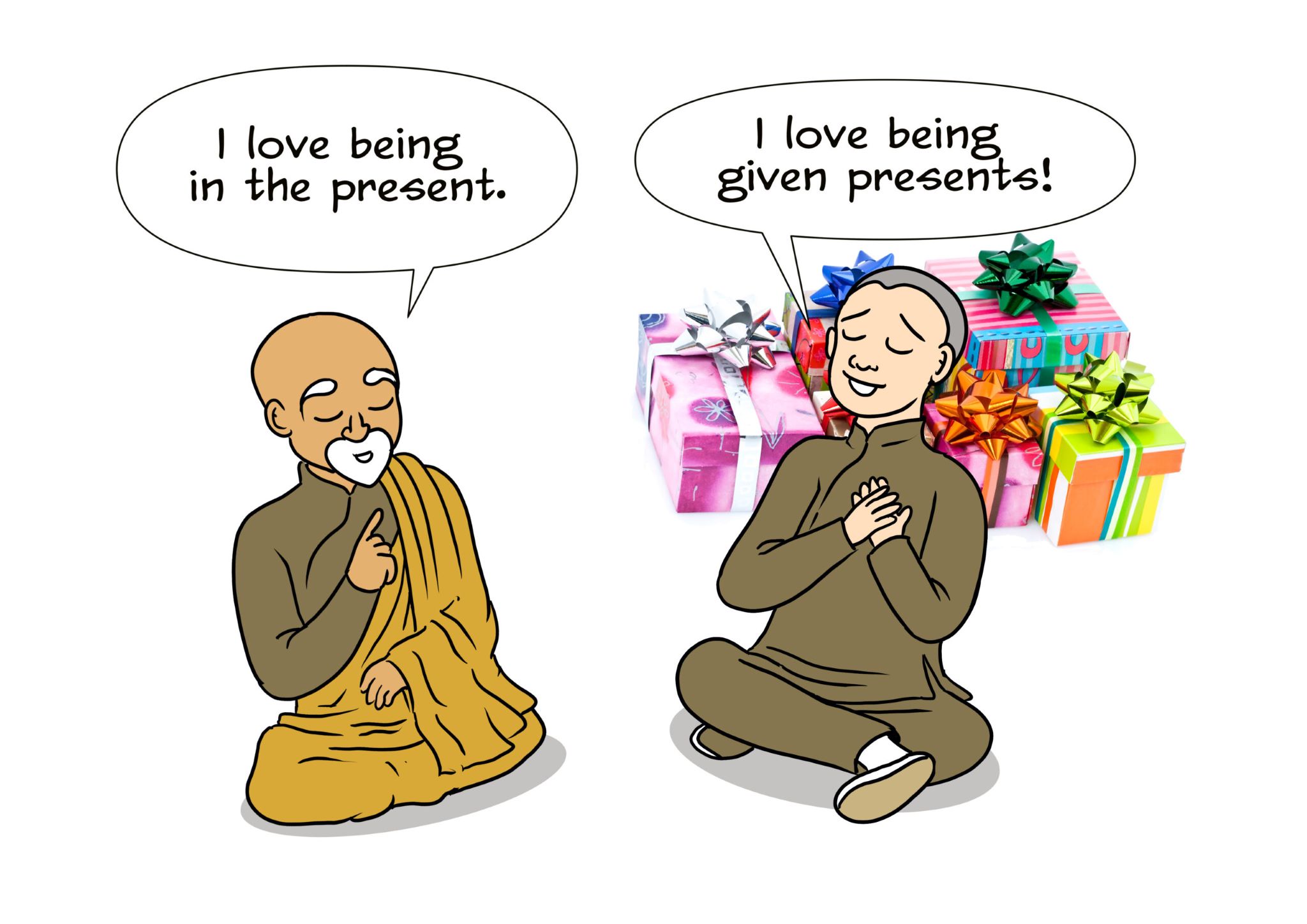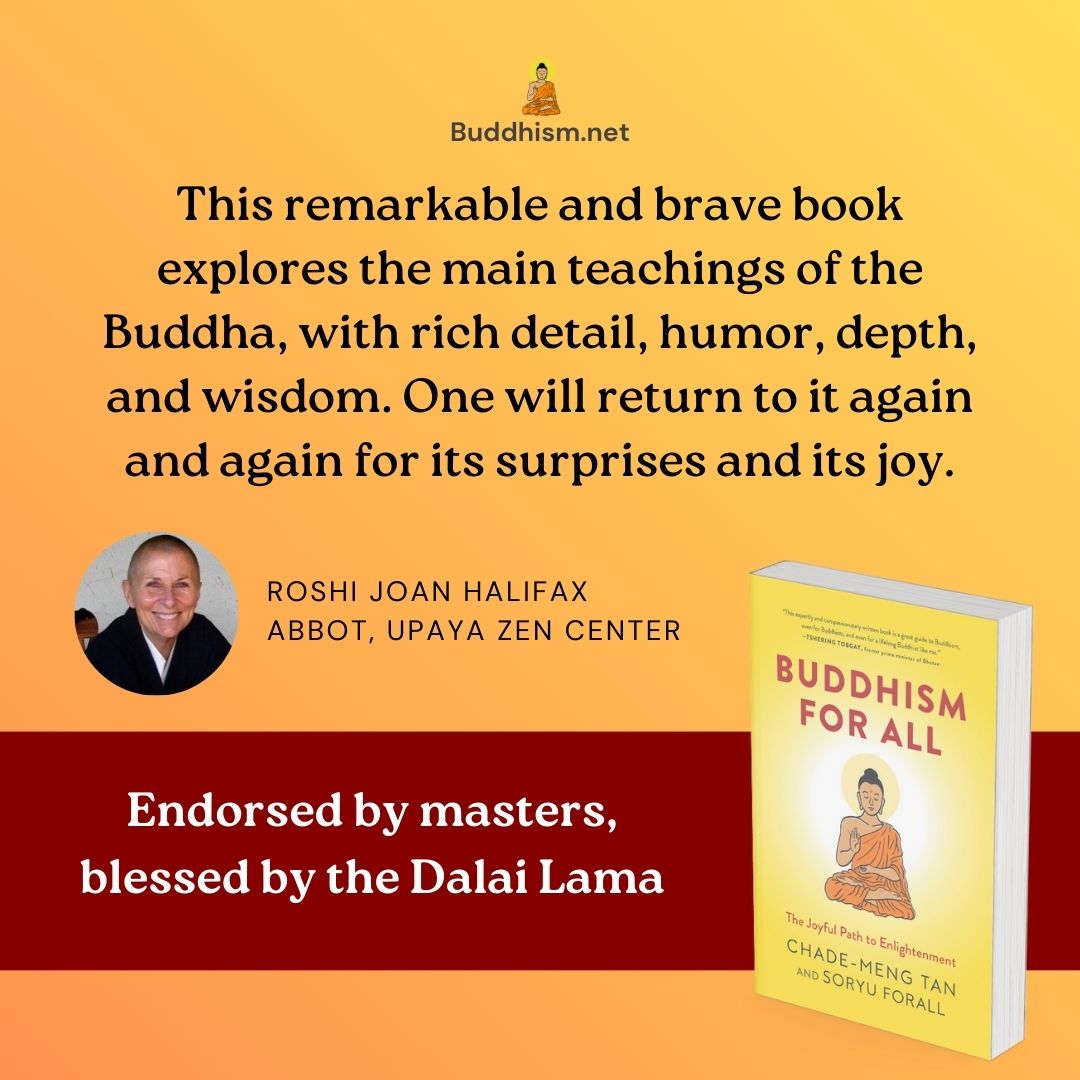
Like right speech, there is a very simple way to think about right action: it is action that gives rise to peace and happiness in self and others. In the same way, right action is simply right intention as applied to action.
As usual, the Buddha provided useful practical guidelines. He prescribed right action as abstinence from three things: killing, stealing, and sexual misconduct.[1]
The combination of right speech and right action gives rise to a set of guidelines that the Buddha recommends for ethical behavior called the five precepts.[2] These five precepts form the center of ethics and morality in Buddhism. They apply both to monastics and lay people. The five precepts are:
- To abstain from killing
- To abstain from stealing
- To abstain from sexual misconduct
- To abstain from lying
- To abstain from intoxicating drinks and drugs
The first three precepts are the practice of right action. The fourth is the one item in right speech that is so important the Buddha also named it as a precept. Those first four precepts are kind of obvious, really, but the fifth precept may be a surprise to some. In one discourse delivered to a large group of monastics and lay folks, the Buddha explained the purpose of abstinence from intoxicants in verse:
Because of intoxication,
foolish people do evil deeds,
and they make other heedless folk do such deeds.
One should avoid this basis of demerit,
delightful to fools, causing madness and delusion.[3]
In modern parlance: we don’t do intoxicants because intoxicants make people do bad stuff. Beyond that, however, there is a deeper reason why there is a precept concerning intoxicants, and that is the keen awareness in Buddhism of the close inter-relationship between the mind, behavior and suffering. For that reason, keeping the mind unclouded and uncompromised is an essential part of Buddhist practice.
There is a beautiful way to look at the five precepts, and that is as gifts. The Buddha says to think of observing the five precepts as giving five great gifts to oneself and others. By observing the precepts, he says, “the noble disciple gives to an immeasurable number of beings freedom from fear, enmity, and affliction. He himself in turn enjoys immeasurable freedom from fear, enmity, and affliction.” [4]
In that spirit, modern Buddhist teachers like to emphasize the active aspects of the precepts. Each precept is not just a call to refrain from certain actions, it is also an opportunity to practice certain beautiful qualities. The great Zen Master Thich Nhat Hanh, for example, lovingly encourages one to use the first precept (to abstain from killing) as an opportunity to practice compassion, the second precept (to abstain from stealing) as an opportunity to practice generosity, the third precept (to abstain from sexual misconduct) as an opportunity to practice true love, the fourth precept (to abstain from lying) as an opportunity to practice loving speech and deep listening, and the fifth precept (to abstain from intoxication) as an opportunity to practice nourishment and healing.[5] In other words, the five precepts are an opportunity for beautiful living.
But wait, there’s more. The five precepts are the core of virtue, and virtue is a gift that keeps on giving. Just for lay people alone, the Buddha lists five benefits of being virtuous:
- A virtuous person does not lose wealth because of heedlessness.
- A virtuous person gains a good reputation.
- A virtuous person approaches any assembly confident and composed.
- A virtuous person dies unconfused.
- A virtuous person, after death, is reborn in a good destination.[6]
For those reasons, the Buddha declares a lay person who possess the five precepts as one who dwells in self-confidence.[7]
Students of religion may be tempted here to equate the five precepts with “moralistic strictures”, standards of conduct set for people by God. Being nontheistic, however, there is no such thing as moralistic strictures in Buddhism, given that there is no God to impose anything upon us. Instead, the reason we practice virtue in Buddhism is because virtue is highly conducive to our own happiness.
Buddhist monk and author Ajahn Munindo has a beautiful way of putting it. Paraphrasing the Buddha, he says, “It is wisdom that enables letting go of a lesser happiness in pursuit of a happiness which is greater.”[8] In Buddhism, the practice of virtue is precisely that, having the wisdom to let go of the lesser happiness of nonvirtuous indulgence for the greater bliss of blamelessness and confidence, and as you shall see later, the even greater bliss coming from compassion, samadhi and nirvana.
Activities
References
[1] Saṃyutta Nikāya 45.8.
[2] Pali: pañcasīla.
[3] Dhammika sutta (Sutta Nipāta 2.14).
[4] Aṅguttara Nikāya 8.39.
[5] Thich Nhat Hanh’s Five Mindfulness Trainings on LearnReligions. https://www.learnreligions.com/thich-nhat-hanhs-five-mindfulness-trainings-449601
[6] Aṅguttara Nikāya 5.213.
[7] Aṅguttara Nikāya 5.171.
[8] This is Ajahn Munindo’s rendering of Dhammapada 290, which reads, “If by renouncing a lesser happiness one may realize a greater happiness, let the wise man renounce the lesser, having regard for the greater.”
Featured image by Colin Goh.

